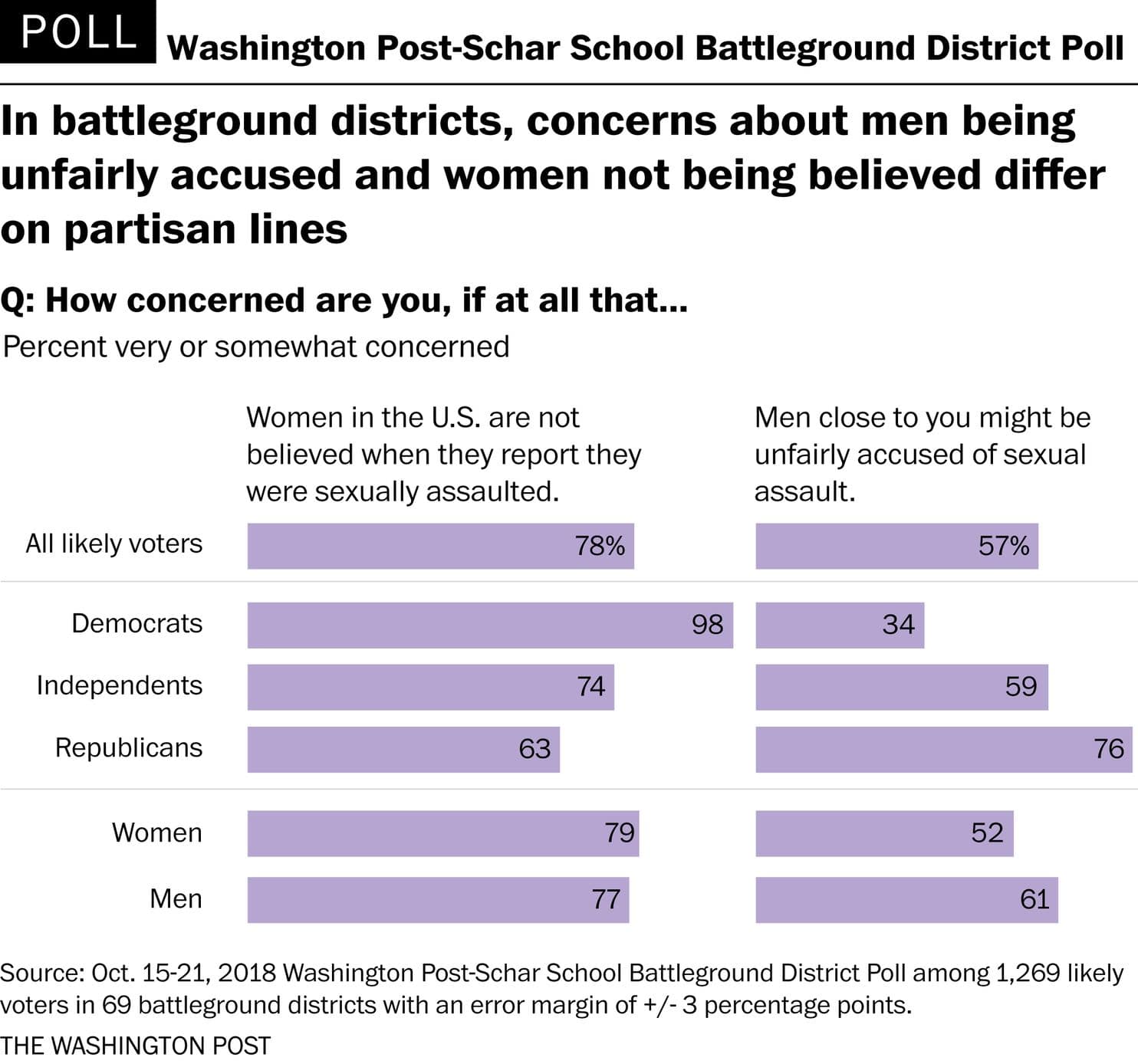In the “generic ballot” polling which asks voters nationwide which party they’ll vote for on Nov. 6, Democrats continue to lead by an average of 7.7 points, according to the RealClearPolitics numbers. However, those numbers cover the entire country and don’t necessarily represent the specific races that Democrats need to flip, and Republicans need to hold, in order to determine which party will be in control of the House next year. The Washington Post recently dropped a huge stack of polling data on Tuesday which specifically focused on battleground districts. These are districts which are considered the “toss up” races that will be the most closely watched on election night.
This poll covered 69 House races, 63 of which are currently represented by a Republican. The end results may be interpreted as good or bad, depending on how you look at it, for both parties:
The latest survey shows only a marginal change in the race during October, with 50 percent currently supporting the Democratic candidate in their district and 47 percent backing the Republican. Candidates from the two parties collectively are running almost even in 48 contested congressional districts won by President Trump in 2016, while Democrats hold the advantage in 21 competitive districts won by Hillary Clinton. The Democrats’ lead in those Clinton districts has narrowed a bit since the beginning of the month.
There’s a lot to unpack in that short paragraph. The end result is that within the 69 battleground districts, the “generic ballot” polling of Republican vs. Democrat is holding at 50% to 48% in favor of the Dems. As the Post notes, this is within the margin of error meaning the races are running even right now. Compare this result to the nationwide generic ballot of +7.7 for the Dems and you can see why many analysts are now guardedly cautious about the prospect of the “blue wave” washing over all these districts. Democrats will win some of them, certainly, but Republicans may hold many of them as well. The question is whether Dems can get the 23 pickups needed to flip the House. Out of 63 battleground districts controlled by Republicans, Democrats need to win one-third of them to take the House.
In the races where Democrats do lead, the advantage is coming from the gender gap:
To the degree that Democrats have any edge in these districts, it is because of support from women, as was the case in the previous poll. Among likely voters, men favor Republican candidates by 51 to 46 percent, while women back Democrats by 55 to 42 percent.
Call it the “Kavanaugh” effect or the “Trump” effect, but either way, if the GOP loses several of these races by small margins, it will be due to women and minorities heading to the polls, at least according to the Post findings. The poll went on to break things down further and find out how voters split over the Kavanaugh hearings and subsequent confirmation:
The Kavanaugh confirmation turned into a supercharged partisan fight, and the findings in the new Post-Schar School survey bear that out in responses to the questions about men and women. Republicans are far more likely than Democrats to say they are concerned that men can be accused unfairly of sexual assault, 76 percent vs. 34 percent. That argument was put forth by Trump and other Republicans as Kavanaugh fought to save his nomination.
Conversely, Democrats are much more likely to say they worry that women who report sexual assaults are not believed, with 98 percent of Democrats saying they are concerned about this compared with 63 percent of Republicans. Democratic leaders had made that argument in defense of Ford, who they said should be believed although she only began to share news of her alleged assault decades after it happened.
Surely some of this will play into November as it galvanizes voters on both sides depending on their view of Justice Kavanaugh and his accuser, Christine Blasey Ford.
The question here is how these feelings on Kavanaugh will affect the outcome, and that remains to be seen. The simple fact that the GOP is running even with Dems in the battleground districts indicates the race is far from decided, though Democrats hold a statistical and historical advantage.
Donate Now to Support Election Central
- Help defend independent journalism
- Directly support this website and our efforts

